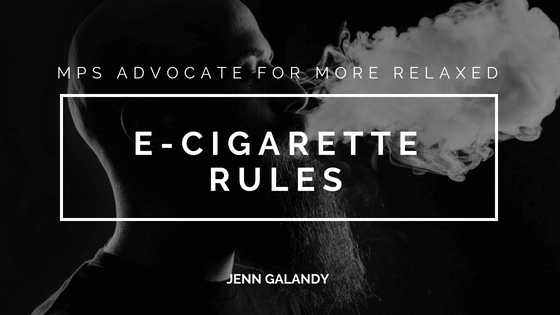There has been a long-running debate on the usage of e-cigarettes and how they are used in public. However, in a recent report by Members of Parliment (MP) in the UK, MPs are asking the government to become less rigid when it comes to rules surrounding e-cigarettes.
The argument that the report presented was that compared to smoking, vaping is less harmful than normal cigarettes. E-cigarettes can even be used to was a way for others to quit smoking.
Within the report, MPs called for multiple actions:
- More freedom in regards to advertisements for e-cigarettes
- Relaxed regulations and tax duties on e-cigarettes
- An Annual review of the health effects of the use of e-cigarettes
- E-cigarettes licensed as medical devices
- A discussion on vaping in public places such as public transport
- An end to the ban on snus (an oral tobacco product)
Vaping has become incredibly popular in the United Kingdom. Almost 3 million people throughout the UK are using e-cigarettes, 470,000 of those are using them to stop smoking.
Norman Lamb, the current chairman of the science and technology committee, urges that the current policy and regulations view e-cigarettes and cigarettes in the same light.
The current legislation bans smoking cigarettes in all enclosed public and workplaces but does not include e-cigarettes. Public Health England advocates that e-cigarettes should not be treated like tobacco cigarettes when creating workplace policies.
Compared to traditional cigarettes, e-cigarettes are less harmful to the public. Public Health England estimates that vaping is 95% less harmful due to the fact that e-cigarettes do not contain tar or carbon monoxide.
However, more research is still needed to better understand the long-term effects. While vaping may be less harmful than cigarettes, lab research on lung cells suggests that the vapor may not be completely safe.
The MP’s report on e-cigarettes received a variety of responses from both a number of thought leaders and the public. The charity Action on Smoking and Health welcomed the thought of making e-cigarettes more socially acceptable but was wary over changing advertising rules, in fear that tobacco companies would market cigarettes as e-cigarettes.
George Butterworth, from Cancer Research UK, argued that the changes to the e-cigarette regulations should help smokers quit but prevent youth from using e-cigarettes at all.
The general public, on the other hand, had some strong opinions in regards to patrons vaping on public transits. Many social media users explained that the unknown health risks aren’t worth the risk.
However, previous tobacco smokers showed their support for a more relaxed set of rules. Where patches and lozenges failed, vaping allowed smokers to quit smoking and turn to a healthier lifestyle.
